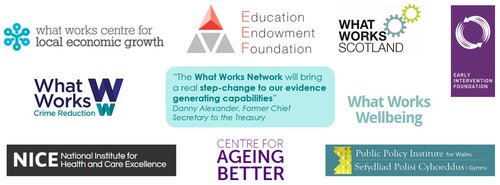Communicating the potential outcomes of policies
Winton Centre for Risk and Evidence Communication
Project - Communicating the potential outcomes of policies

Decision makers need communications that succinctly describe the potential harms and benefits of different options, and this problem is widely recognised in situations such as patients choosing medical treatments. Best practice has evolved towards developing formats that give clear, unbiased information to support decisions. However, policymakers or citizens evaluating a policy are rarely given such balanced and easily understood summaries of the potential outcomes of their decision, despite the enormous consequences of public policy.
Information on the potential outcomes of policy decisions are more complex than those for individuals:
Our first major paper on this problem is a review of current methods of evidence communication for policy makers: Winner and losers: communicating the potential impacts of policies. We are now working on whether some of the lessons learned in the field of healthcare can be applied to the communication of evidence to policymakers, helping them make decisions.
We also completed a 2019 survey with the users of the websites of several of the UK's What Works Centres, which commission and synthesise evidence on a range of policy topics. We found out what information is important to the Centre users and how they interpret the current presentations of evidence (such as the online toolkits, eg. the Education Endowment Foundation evidence Toolkit, and theCollege of Policing's Crime Reduction Toolkit). The research is published in the journal Behavioural Public Policy.
The impact of evidence communication guidance
We are also currently investigating the impact of recommendations for communicating evidence. In a recent Nature commentary we laid out Five rules for evidence communication:
You can download your own Evidence Communication Tick-list, based on this article, here.
How does following this advice impact your audience? To find out, we are running several studies in which people read short summaries of evidence about an issue. Some summaries have been edited to follow these recommendations. That is, they are more balanced and transparent about uncertainties and the quality of evidence. Do these changes lead people to be more or less trusting of the information? Do they lead people to make different decisions about relevant personal or policy options? We hope to publicise the results of this research soon.